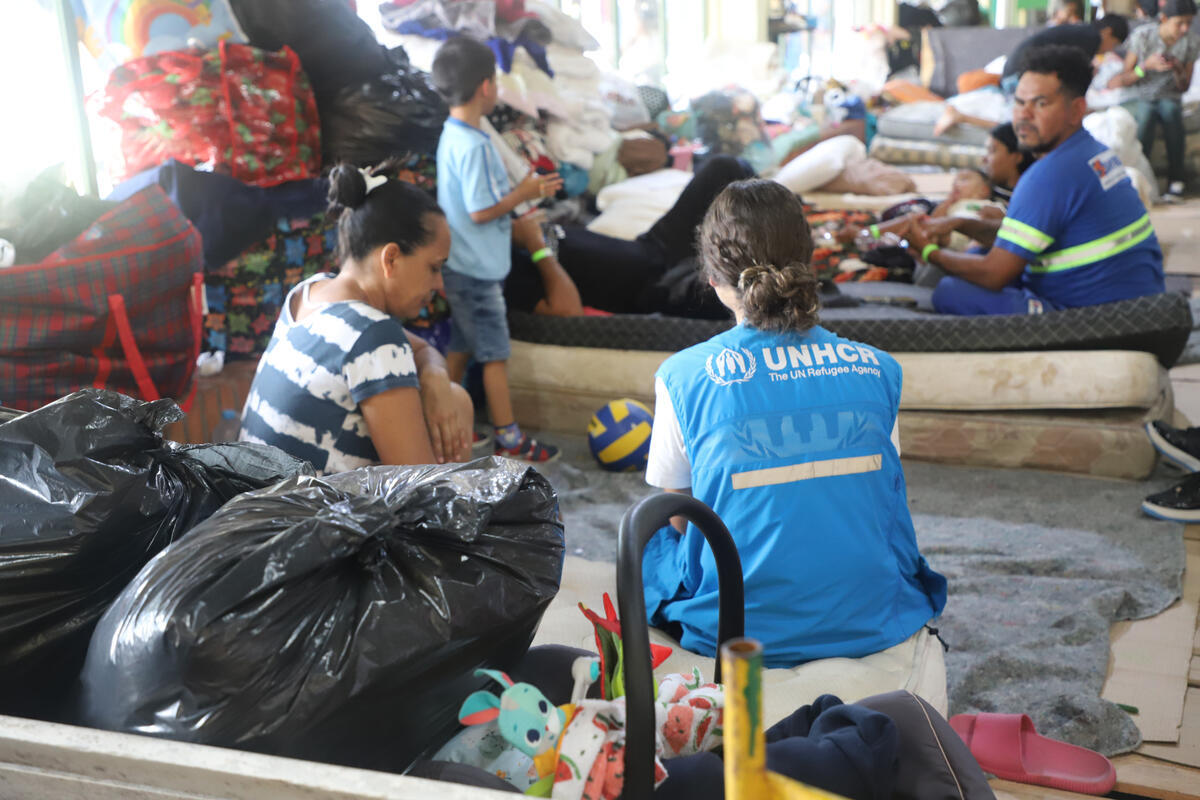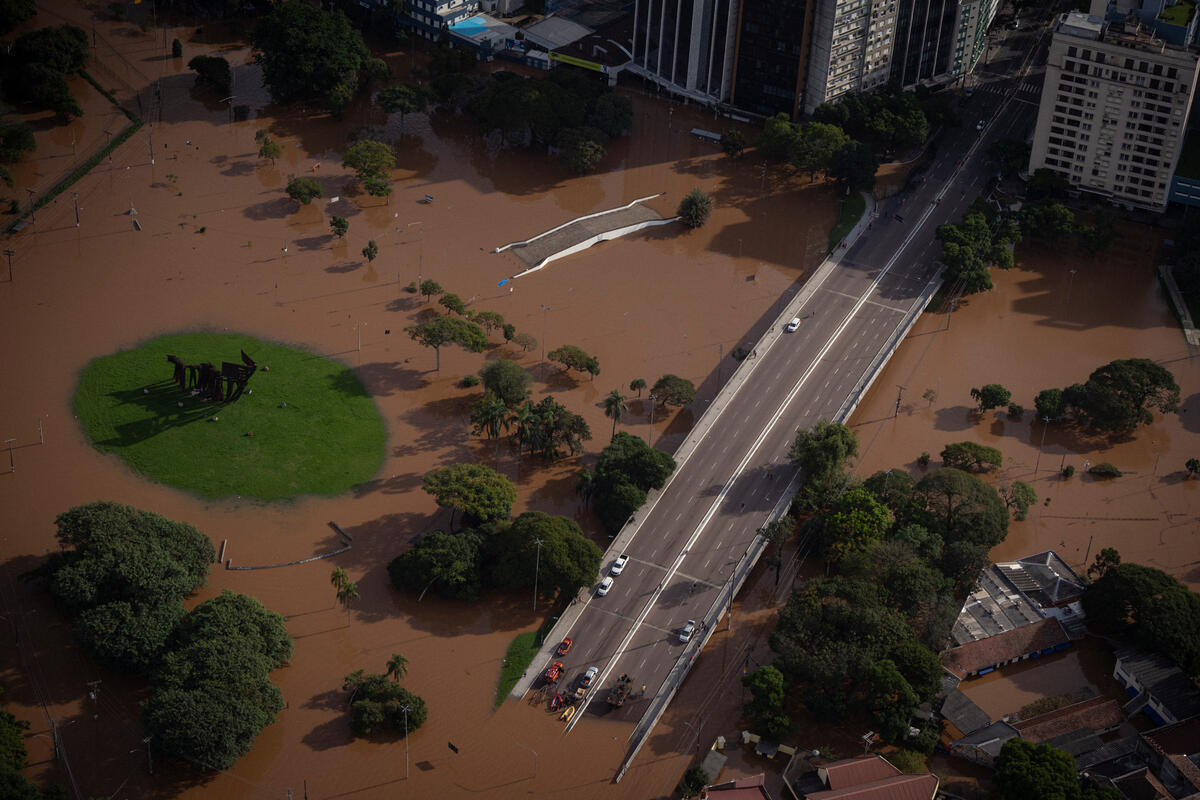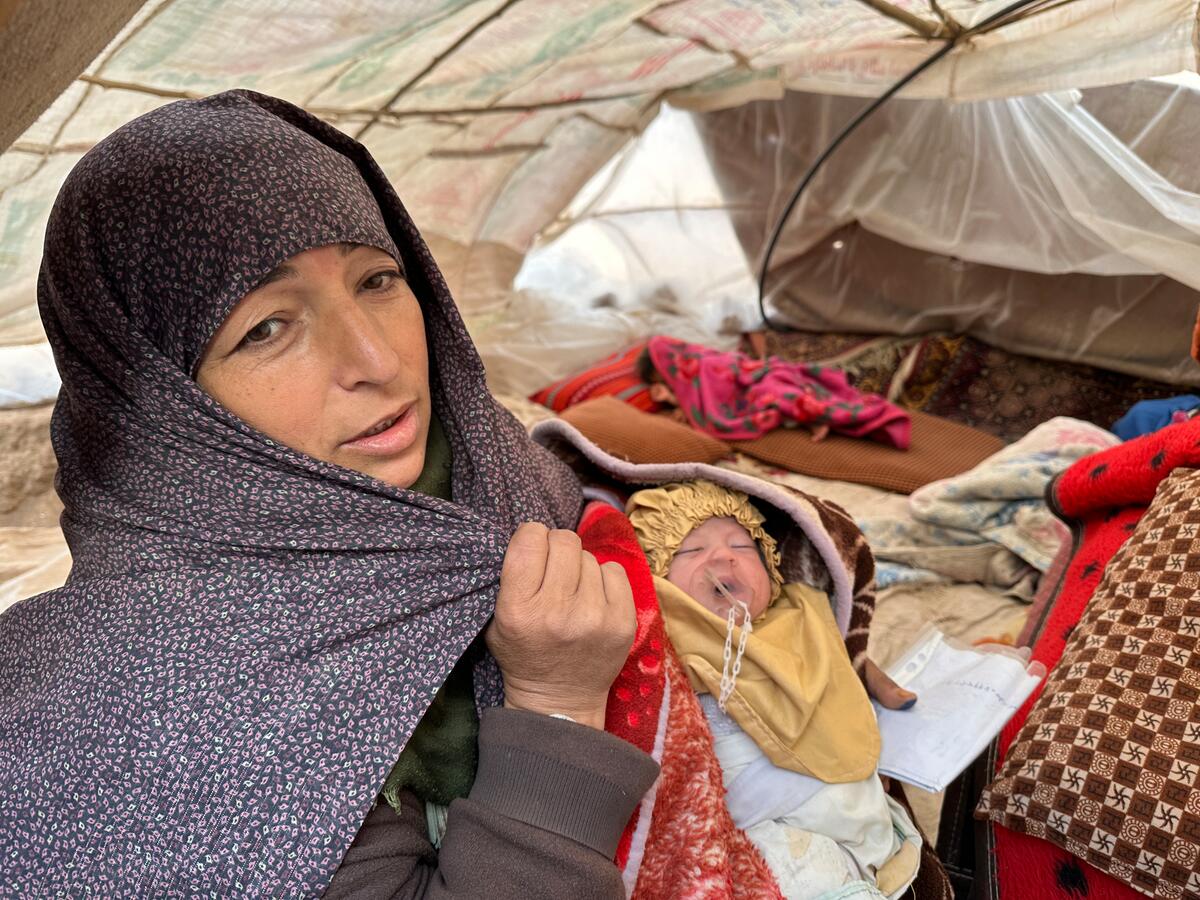Explosion damages UNHCR office, injures staff in southern Afghanistan
Explosion damages UNHCR office, injures staff in southern Afghanistan

SPIN BOLDAK, Afghanistan, June 28 (UNHCR) - An ammunition dump exploded Thursday night in Spin Boldak, southern Afghanistan, injuring one UNHCR staff member and causing extensive damage to the refugee agency's office, located only some 200 metres from the explosion site.
Dozens of people were reportedly missing and injured in the explosion. The injured UN refugee agency staff member was taken to Kandahar hospital, three hours away, for treatment. His wounds were said to be light, but he was suffering from severe shock.
The head of UNHCR's sub-office in Kandahar is now inspecting the damage in Spin Boldak, accompanied by demining teams that arrived Friday from Kandahar, the provincial capital.
"The ammo dumps were going off all evening with considerable damage all around," said Mark Rutgers, who heads UNHCR operations in Spin Boldak. "Our office was very badly damaged."
The refugee agency's two vehicles were riddled by shrapnel, Rutgers said, with their roofs caved in and windscreens imploded by the power of the nearby blast.
Large amounts of unexploded ordnance are apparently scattered through the area, having been blown over from the ammunition dumpsite.
"A cordon was put around the ammo dump [today], and it's still smouldering," Rutgers said. "But that doesn't mean that it's safe." The border crossing from Pakistan is reportedly still open for traffic.
There are an estimated 32,000 internally displaced persons (IDPs) living in five sprawling makeshift camps in Spin Boldak. So far, there have been no reports of injuries among them. UNHCR has been working to shift the displaced Afghans back to their home areas, transporting more than 5,000 homewards so far.
More than 1,000 IDPs in Spin Boldak have signed up to return to Balkh, Faryab, Jowzjan and Samanghan provinces in northern Afghanistan, but security conditions are not yet satisfactory for UNHCR to transport them home.
Spin Boldak is also the principal entry point for Afghans returning home from Pakistan's Baluchistan province. The rate of return from Baluchistan is 10 percent of Pakistan's overall repatriation figures, with more than 100,000 Afghan refugees returning home via Spin Boldak since March 1.
At a press briefing Friday, UNHCR spokeswoman Jennifer Clark said, "With the large numbers of Afghans living in and passing through Spin Boldak, it's vital to ensure that unexploded ordnance is cleared from the town to ensure the safety of its citizens and returnees travelling through the community."








